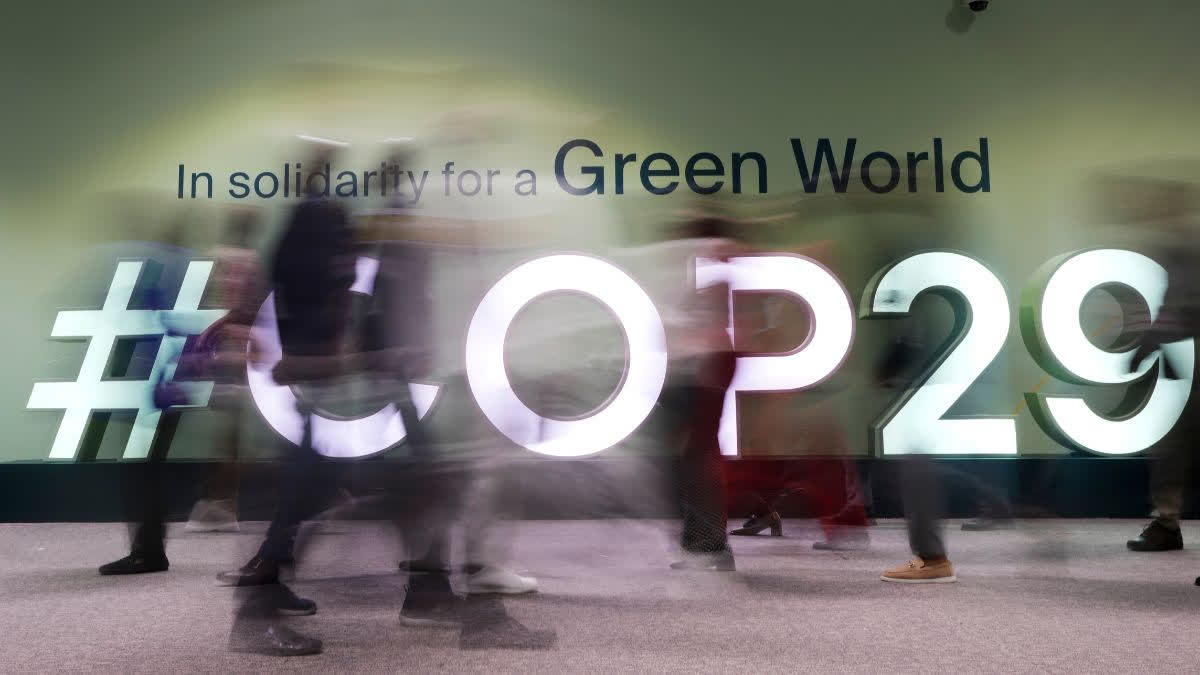Hyderabad: Climate change is reportedly causing more frequent extreme heat and destructive weather events, impacting countries already dealing with humanitarian crises and extreme poverty. Nearly 40 per cent of displacements caused by natural disasters in 2023 occurred in countries highly vulnerable to climate change and lacking adequate response capabilities, according to UNFPA's analysis.
The study, using data from the Internal Displacement Monitoring Centre, examined over 26 million internal displacements from nearly 4,000 disaster events and analysed the data by gender for each disaster. As per the report:
- 23 per cent of displacements occurred in low-income countries, where women and girls face significant risks to their health, safety, and livelihoods during disasters
- 24 per cent of disaster displacements happened in countries at very high risk of humanitarian crises and disasters, potentially overwhelming government response capabilities
- 26 per cent of weather-related displacements took place in countries receiving humanitarian assistance in 2023
- While 25 per cent of displacements were in countries with low social and economic development, over 50 per cent occurred in countries with high development, showing that weather-related disasters affect all nations
'In climate-hit countries, women and girls suffer the most'
Climate change, especially extreme heat, poses significant health risks for women and girls, including stillbirth, malnutrition, gender-based violence, heat stress, and infectious diseases, the report claims, adding that it also threatens gender equality and sustainable development by exacerbating inequality, disrupting health services, and limiting access to education and livelihoods.
Dr Natalia Kanem emphasises that women and girls suffer the most in climate-hit countries, losing access to essential services and opportunities.
The UNFPA analysis of IDMC data reveals that 13.1 million out of 26.4 million displacement incidents involved women and girls, with many displaced multiple times due to natural disasters. Over half of these displacements occurred in China, Türkiye, the Philippines, Somalia, and Bangladesh. As per the report, nearly 75 per cent of all displacements were caused by storms and floods. While not all weather-related disasters are due to climate change, it is increasing the frequency and intensity of some extreme weather events.
UNFPA calls for greater climate action, focusing on women and girls
At COP 29 in Baku, Azerbaijan, UNFPA called for the following measures:
- Invest in Climate Resilience: Focus on protecting vulnerable women and girls from climate disasters through early warning systems, disaster preparedness, and climate-resilient healthcare.
- Increase Climate Finance: Provide sufficient financial support to vulnerable countries, especially women and girls, to address climate change impacts and enhance resilience.
- Empower Women and Youth: Include women and youth in decision-making processes and ensure they have access to resources to lead climate action and build sustainable communities
Dr Kanem emphasises that without urgent action, climate change will further hinder progress on gender equality and sustainable development. She calls for prioritising the rights, health, and well-being of women and girls in climate action efforts.



